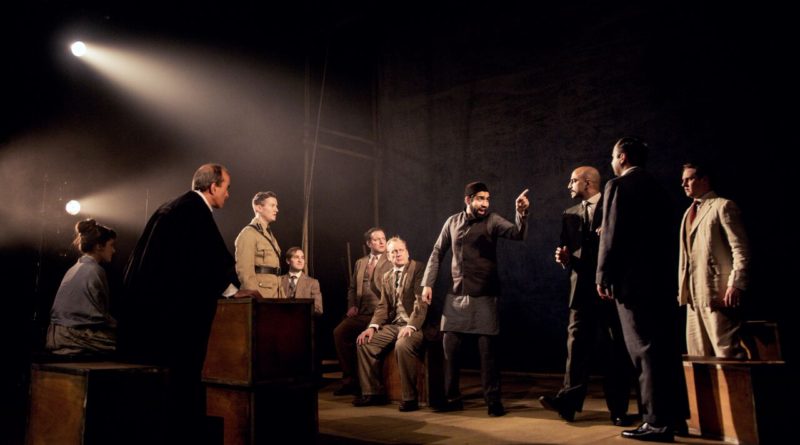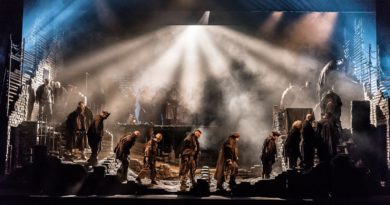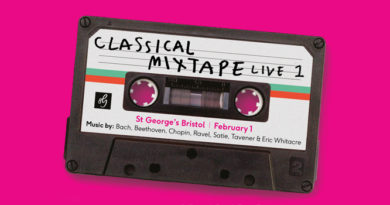A Passage to India at Bristol Old Vic
I’m half Irish, and this is the year I have finally decided to get my Irish passport in the wake of all things Brexit. I feel a real sense of relief in this as I have apologised many times for my ‘English-ness’, or felt ashamed of this nationality. My best friend is Czech, and I always wonder what kind of English person her friends will think I am when I go over to visit. I’m embarrassed about the Brexit result which does not represent my wishes. I am embarrassed I am unable to speak their language yet they all speak fluent English to me. I am excruciatingly shameful of my fellow countrymen who invaded in the earlier part of the new millennium and turned Prague into ‘stag-do central’, and always felt the need to apologise for this. Although all of this is more vaguely related to the concept of the old British empire and our colonial past, I knew that A Passage to India presented by Royal & Derngate, Northampton and simple8 Theatre Company and adapted by Simon Dormandy which I saw last night at the Bristol Old Vic would resonate with my discomfort and internal conflict over my own perceived cultural shortcomings. The show begins with Walt Whitman’s poem of the same name, which speaks of a hope that better communication can lead the world to join together in love. E.M. Forster borrowed the title for his 1920’s novel, but felt that this poem was far too optimistic. The rallying assertion from character Mahmoud Ali after this opening that “One cannot be friends with the English!” set the tone for the show and made me certain I would be left grappling with the themes presented long after it ended.
Set in the times of the British Raj rule of the Indian subcontinent just before the First World War, we meet Adela Quested and Mrs. Moore who are travelling in the country. They are also there to see Mrs. Moore’s son Ronny, currently serving as a British magistrate. Adela and Mrs. Moore are open to all the experiences the country has to offer with Adela in particular keen to see the ‘real’ India. Most of the other Anglo-Indians (the way that the colonial British were referred to at the time) have a much lower opinion of native Indians they meet and work with, often appearing rude, dismissive and confrontational. The exception to this is the character of Fielding, the principle of the government college who strikes up a friendship with local doctor Aziz. When a series of events leads Aziz to land in prison charged with sexual assault, the question of friendship between differing cultures is challenged and the fallout is far reaching. Will relationships be able to be repaired, or is it impossible for love to flourish when culture and belief can cause such divides?
From the trailer and images I had seen that accompanied advertising for this show, I was expecting a riot of colour and an assault on the senses that would transport the viewer to evocative and rich landscapes. Instead, the show is very minimal in its presentation, where scenes and landscapes are hinted at through clever use of props and the audience is encouraged to flesh out the detail. At first this filled me with a sense of disappointment, but I quickly understood why the show is presented in this way. Directors Sebastian Armesto and Simon Dormandy are clearly interested in the dialogue, character development and philosophical and political perspectives of the novel. I also was left with a sense that perhaps I was equally as naive as the character of Adela and her constant seeking of the ‘real’ India. The version in my head of a country I have never been to has been undoubtedly shaped by romanticised film portrayals of the country and its Raj empire. However, the reality of British rule was that it was harsh, often unfair and about conquering rather than living in harmony with the Indian people. In that respect, the play was all the more powerful for leaving visual detail to the imagination, it had a crisp and sharp feel to it where the dialogue was free to be the main focus and the story line could draw you in with no need for pomp or ceremony. On the other hand, this was not a show that made it easy to drift off as it required a certain level of concentration to keep up with the plot twists and turns, and that was a bit tricky after my very long day. The highlight of the show for me was the live music composed by Kuljit Bhamra. Close your eyes and listen; you would be transported to the country in a way that over-egged visual clichés would most definitely not have offered.
Overall, I still feel like I am processing A Passage to India, a show based on a novel I am not familiar with. I occasionally found some of the dialogue hard to keep up with, and am still unsure of my feelings towards some of the central characters. Adela in particular left me feeling confused as I am unable to be certain if I feel any empathy for her plight or if she merely irritated me. However, these feelings are a good metaphor for a piece which often cited the muddle of the political and religious landscape of the time it was set. Nothing was straightforward or easy to make peace with, which really is not too different to our own political and philosophical landscape of the current day. I’ll be thinking about A Passage to India for a while yet, which is never a bad thing, and if you want your thoughts to be provoked you can catch it until the 3rd Feb at the Bristol Old Vic.





